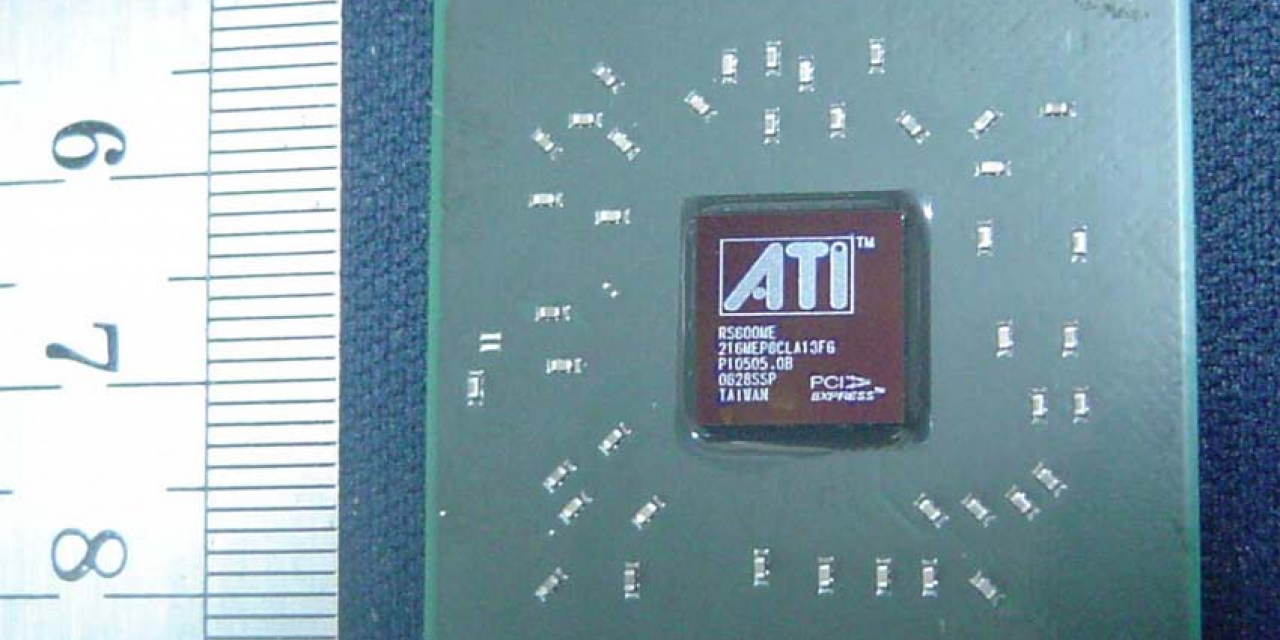
After years of lagging behind Intel in CPU design and behind NVidia in GPU design, AMD is finally making headway with $6 billion end of year profit coupled with the soft release of its Radeon 7970 GPU that beat NVidia's top offering and Bulldozer CPU that rivals Intel's top CPUs. Unfortunately for AMD, it seems that a half a decade old mistake is on its way to bite them in the back.
Taiwan-based Quanta Computer Inc. has filed a lawsuit against AMD alleging that it has sold them defective Radeon Xpress X1250 GPU chips that caused Quanta's designed laptops to overheat.
It is unlikely that you've heard of Quanta, but odds are you have a product built or co-designed by them. Quanta is the original design manufacturer for a lot of the most prestigious brands such as HP, Dell, Sony, Apple and Toshiba among others. Quanta's main job is to take those companies' designs and and tweak them into production-ready forms.
According to Quanta, the Radeon Xpress X1250 chips it received from were used in a series of laptops designed and manufactured for NEC. In its court filing the Taiwanese company accuses AMD of engineering negligence, claiming that AMD's poor thermal engineering caused the chips to overheat and malfunction. The lawsuit also accuses AMD of breach of warranty, negligent misrepresentation, civil fraud, and interference with a contract.
AMD denied all of Quanta's accusations and issued a brief statement, saying that: "AMD disputes the allegations in Quanta's complaint and believes they are without merit. AMD is aware of no other customer reports of the alleged issues with the AMD chip that Quanta used, which AMD no longer sells. In fact, Quanta has itself acknowledged to AMD that it used the identical chip in large volumes in a different computer platform that it manufactured for NEC without such issues."
AMD's objection is indeed reasonable as the X1250 chips have been used in tens of laptop series - several of them designed and produced by Quanta - with no other reported issues. This means that the problem was most likely caused by defects in packaging or other design components. However, it is still possible that the chips didn't live up to the specifications AMD committed to in their contract with Quanta.
Either way, it is definitely not in AMD's best interest to be involved in such a dispute with the market's largest original device manufacturer. While there is no such a thing as "bad relations" in business and Quanta will always use AMD's components whenever they out price the competitions' offerings; however, those "bad relations" can sway Quanta's decision in most cases when cost and performance are close. With that in mind, we expect AMD to settle with Quanta out of court.
